RPCV Brother Guy Consolmagno (Kenya), Director of Vatican Observatory
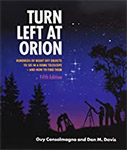 Brother Guy Consolmagno is the co-authored two astronomy books: Turn Left at Orion: Hundreds of Night Sky Objects to See in a Home Telescope – and How to Find Them (with Dan M. Davis; Cambridge University Press, 1989) and Worlds Apart: A Textbook in Planetary Sciences (with Martha
Brother Guy Consolmagno is the co-authored two astronomy books: Turn Left at Orion: Hundreds of Night Sky Objects to See in a Home Telescope – and How to Find Them (with Dan M. Davis; Cambridge University Press, 1989) and Worlds Apart: A Textbook in Planetary Sciences (with Martha 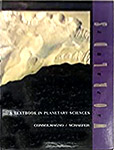 W. Schaefer; Prentice Hall, 1993).
W. Schaefer; Prentice Hall, 1993).
He is the author or co-author of four books exploring faith and science issues, including The Way to the Dwelling of Light (U of Notre Dame Press, 1998); Brother Astronomer (McGraw Hill, 2000); God’s Mechanics: How Scientists and Engineers Make Sense of Religion (Jossey-Bass, 2007), and Would You Baptize an Extraterrestrial? (With Paul Mueller, Image, 2014). He also edited The Heavens Proclaim (Vatican Observatory Publications, 2009). Since 2004 he has written a monthly column on astronomy for the British Catholic periodical, The Tablet.
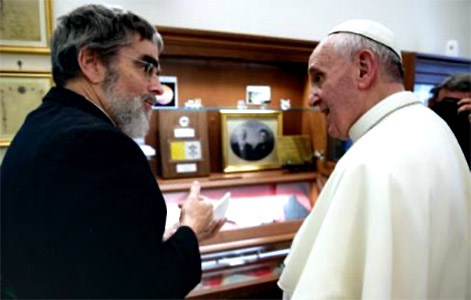
Brother Guy Consolmagno and Pope Francis
Brother Guy Consolmagno (Kenya 1983-85) is the director of the Vatican Observatory, and president of the Vatican Observatory Foundation.
Having attended a Jesuit high school, Consolmagno contemplated joining the church at several points in his life before joining the order in 1989. Two years later, he was called to serve at the Vatican Observatory where he has been ever since. Consolmagno’s research has always focused on the smallest bodies in our solar system and his work at the Vatican has allowed him to make significant contributions to this field over the past several decades. In 2014, he was awarded the Carl Sagan Medal by the American Astronomical Society for outstanding communication of planetary science to the public.
Where are you from in the States, Guy?
I was born and raised in Detroit. However, I moved to Boston when I started my college education, earning my undergraduate degree in Earth and Planetary Sciences from MIT and then I stayed an extra year to write a master’s thesis on my undergraduate work. After that, I moved to Tucson to pursue my doctorate in Planetary Sciences from the University of Arizona, which I received in 1978.
Once I had my PhD I moved back to Boston to start the typical academic tenure-track path, starting as a postdoctoral researcher, first at Harvard and then at MIT.
But I was unsatisfied with the life of mere scientific research. I thought, “why am I studying the moons of Jupiter when there are people starving in the world?” So I decided to leave science behind and enter the Peace Corps.
Where did you serve?
I thought I would be assigned to teach at a remote high school. That quickly shifted to teaching at one of the best national high schools, Starehe Boys Centre in Nairobi. And I was only there one term before they moved me over to the University of Nairobi, where I wound up being a scientist again! I was teaching in the physics department, and among my masters’ students were those who had jobs waiting for them at the Kenya Science Teacher’s College, so indirectly at least I was helping out those remote high schools.
How has your Peace Corps experience informed what you have done with your life?
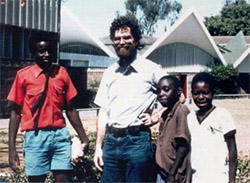 Every weekend I would go upcountry to visit my friends in the “real” Peace Corps. And I would bring a few slides of the planets and NASA missions, and my little telescope. Everyone in the villages loved looking at the Moon or Jupiter or Saturn through the telescope; and of course, so did I! But that made me realize the value of the sort of astronomy I had been doing. It also changed my attitude for why I was doing the science… not for the prestige of publishing papers but for the joy of sharing the amazing universe with my scientists… and even more, with everyone else as well.
Every weekend I would go upcountry to visit my friends in the “real” Peace Corps. And I would bring a few slides of the planets and NASA missions, and my little telescope. Everyone in the villages loved looking at the Moon or Jupiter or Saturn through the telescope; and of course, so did I! But that made me realize the value of the sort of astronomy I had been doing. It also changed my attitude for why I was doing the science… not for the prestige of publishing papers but for the joy of sharing the amazing universe with my scientists… and even more, with everyone else as well.
 When I returned to America, I got a teaching job at a small school, Lafayette College, teaching physics and astronomy. I loved it. And I co-authored a book, Turn Left at Orion, on how to use a small telescope, based in part on what I had learned with my small telescope in Kenya. [It has gone on to be one of the most successful astronomy books of all time, with almost 200,000 copies sold; thirty years later it is now in its fifth edition. Guy has published 8 books ]
When I returned to America, I got a teaching job at a small school, Lafayette College, teaching physics and astronomy. I loved it. And I co-authored a book, Turn Left at Orion, on how to use a small telescope, based in part on what I had learned with my small telescope in Kenya. [It has gone on to be one of the most successful astronomy books of all time, with almost 200,000 copies sold; thirty years later it is now in its fifth edition. Guy has published 8 books ]
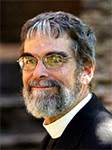 But even small college teaching wasn’t enough to satisfy that hunger to do astronomy for more than just myself. So, four years after I’d gotten back from Kenya, I entered the Jesuit order. My hope was to teach as a Jesuit brother in a Jesuit college or university. But instead, after my Jesuit training, I was sent directly to Rome to serve at the Vatican Observatory. I have been there since 1993, and was appointed director of the Observatory in 2015.
But even small college teaching wasn’t enough to satisfy that hunger to do astronomy for more than just myself. So, four years after I’d gotten back from Kenya, I entered the Jesuit order. My hope was to teach as a Jesuit brother in a Jesuit college or university. But instead, after my Jesuit training, I was sent directly to Rome to serve at the Vatican Observatory. I have been there since 1993, and was appointed director of the Observatory in 2015.
All of that started with my Peace Corps experience.
When you look back on your Peace Corps experience how do you describe it to others?
It changed my life; it made me a set of lifelong friends; it gave me a lifetime of stories to tell my friends and family back in America. And, oh, did I mention, it changed my life?
What are you doing differently because you were a Peace Corps Volunteer?
Only everything.
Would you ever want to go back and be a Peace Corps Volunteer again?
Actually, no. It was such an intense experience that I couldn’t do it again. I have been to other countries in Africa since then, but I have never returned to Kenya; I know that the Kenya of today is a very different place from the one I left, and “you can’t go home again.”
What do you recommend to Peace Corps Volunteers today?
Don’t be afraid. And don’t think you will ever completely understand what’s going on around you. Learn to look, learn to laugh. No matter your experience, it will never be what you expected; that’s part of the fun. And what they say is true: the hardest part is when you get back home. But it’s worth it all.
It’s either empirically true or apocryphal — but in any case there is a perception that people who’ve joined Peace Corps are disproportionately Catholic (apparently also true in the Marine Corps) — why do you think that is, and how did your Catholic faith (pre Jesuit) inform your decision to serve?
I’m not sure how you could track that, but I wouldn’t at all be surprised if the population of Peace Corps volunteers was disproportionately Catholic. Certainly my faith motivated me to join, and it changed and grew profoundly as a result of my service.
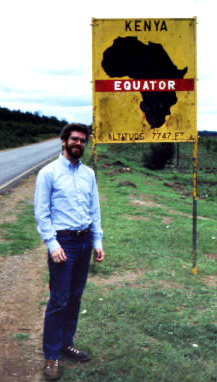 The reason I went into the Peace Corps in the first place was a feeling that I needed to do more with my life than just endlessly churn out scientific papers. Even at the time, I knew that this feeling had come out of the education I’d gotten from the Jesuits in Detroit.
The reason I went into the Peace Corps in the first place was a feeling that I needed to do more with my life than just endlessly churn out scientific papers. Even at the time, I knew that this feeling had come out of the education I’d gotten from the Jesuits in Detroit.
From those of us who don’t know about the Vatican Observatory. What is it? What do you do as a director . . . be an administer, do research, or both?
In some ways I am like a university president, compared to a provost. I set the general policies, do a lot of fundraising, and act as the public face of the observatory with lots of interviews and popular writing. The assistant director, bless him, does the bulk of the day-to-day administration.
Are you involved in your work with the Vatican itself?
Not on a day-to-day basis. The Vatican is remarkably small and it gives its various departments lots of independence. We will meet a few times a year with the heads of other departments at the Vatican City State, and we send them an annual report of what we’ve been up to. The fact that we are located in the Papal summer gardens, about 20 kilometers outside of Rome, means that I actually don’t get to see many other people at the Vatican.
Why did the Pope establish the Observatory?
This goes back to 1891; Pope Leo wanted to show the world that the Church supported science. The date is significant because the late 19th century is the first time that enemies of the Church started spreading the rumors that the Church was anti-science . . . the typical misinformation that most people have even today about Galileo is evidence of how successful those efforts were. And, I guess, at how much more work we have to do at the Observatory!
And for those of us who might be coming to Rome and to the Vatican, is it possible to visit the Observatory?
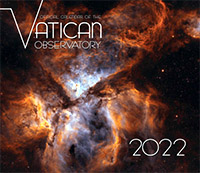 Not yet; we have a visitor’s center almost ready to open within the Castel Gandolfo Gardens, but Covid has delayed that opening. Still, we hope to be ready to host groups by next summer.
Not yet; we have a visitor’s center almost ready to open within the Castel Gandolfo Gardens, but Covid has delayed that opening. Still, we hope to be ready to host groups by next summer.
 https://rangeenraat.com/desi-bhabi-mms
https://rangeenraat.com/desi-bhabi-mms
Your blog post had me hooked from the very beginning!
Leaked desi bhabi mms mms – exclusive on our site https://rangeenraat.com/desi-bhabi-mms
https://rangeenraat.com/desi-bhabi-mms